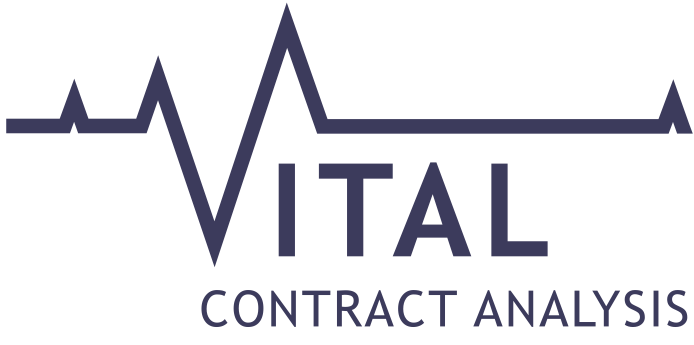The Gender Pay Gap in Medicine
The Gender Pay Gap in Medicine: Why Female Doctors Make Less
(And How You Can Negotiate For More)
By Katherine Sharif
Unfortunately, it is a known fact that in medicine-as with many professions-women earn substantially less than men. The latest data shows that in the medical field, the gender pay gap remains relatively constant across specialties. The reasons for this have been contested for decades, but overwhelmingly one of the main factors that researchers agree upon is that it comes down to negotiation…or the lack thereof.
Keep in mind that the best way to guarantee that you get what you deserve is to arm yourself with all the tools needed to successfully negotiate your employment contract. Do you know what you’re worth? What the average compensation rate for a physician in your specialty is, and how that varies across geographic regions and employment types? Additionally, there are many other negotiables in an employment contract that go beyond standard compensation. How do you know when to ask for a signing bonus? Increased wRVU’s? How does the contract deal with malpractice insurance and tail-coverage? All of these-as well as many more-issues come into play with contract negotiation, and the best way to make sure that you are being fairly compensated is to first know what to look for. Then you need to know how to negotiate for it.
So How Bad Is The Gender Pay Gap In Medicine?
Well…it’s pretty bad. The gender pay gap averages over $50,000 per year and is shown to be present across multiple specialties.
According to a study published in JAMA Internal Medicine, “researchers analyzed the salaries of 10,241 academic physicians at 24 public medical schools across the country. The results were disheartening. Even after adjusting for the factors that can determine compensation—such as “age, experience, specialty, faculty rank, and measures of research productivity and clinical revenue,” which include how many patients a doctor sees and how often he or she publishes research—the average pay gap between men and women was $19,878 a year. Before adjusting for those factors, the absolute gap between the earnings of male and female doctors averaged $51,315 a year”.
In even more disheartening news, a recent study of Medicare fee-for-service reimbursement found that after adjustment for frequently cited reasons for gender pay inequality, a statistically significant gender payment differential was still seen among physicians in 85 percent of 13 medical specialties evaluated.
In some fields, women earn less because of what researchers call the "inherent value" notion, whereby women set lower prices for their work. But this concept does not apply to fee-for-service medicine because Medicare and private insurers set standard prices for virtually all services that physicians perform. Researchers concluded that two reasons a pay gap persists in medicine may be because 1) female physicians tend to spend more time with their patients and 2) they "undercode" their services. But that doesn’t account for the fact that the gender pay gap applies throughout almost all fields. Conclusion: One factor that researchers all agree on is that better negotiation is key.
Women In Particular Don’t Always Negotiate For Their Fair Market Value
As for women entering into compensation negotiations with a prospective employer, multiple studies have shown that women are not always comfortable negotiating for themselves and are often better advocates for others. Additionally, “women are also less likely to initiate a negotiation—a process that is crucial for professional advancement. This reluctance to ask hinders their advancement and can have long-lasting consequences—both in terms of earning potential and professional advancement”.
So What Can You Negotiate For?
This varies in each individual situation, but generally the answer is a lot more than you would expect. Obviously compensation is negotiable, but in many cases, you can also negotiate the signing bonus, malpractice or tail insurance coverage, wRVU’s, vacation days, and many other terms of the contract. But first, you need to know what to value yourself at…what is the fair market value of your skillset? Whether you are a resident signing a first employment contract and/or comparing offer letters or an established physician renegotiating an existing contract, this information is key to being able to better negotiate for yourself. This is where both MGMA benchmark data and contract law will come into play. Feel free to contact us for a free consultation.
In order to maximize your earning potential, we can help you interpret MGMA data and the applicable contract law so that you can negotiate with confidence. Additionally, we’ll provide you with negotiation tips and guidelines that will aid you in all future negotiations.
A Final Takeaway
Be smart about this. This is your career. Be confident that you have done everything possible to maximize your earning potential. It’s not just important, it’s vital.
References:
Medscape. Medscape Female Physician Compensation Report 2016. Available at: http://www.medscape.com/features/slideshow/compensation/2016/female-physician.
Accessed April 26, 2017.
Arora V. It is time for equal pay for equal work for physicians—Paging Dr. Ledbetter.
JAMA Interm Med. 2016;176:1305–1306.
Available at: http://archinte.jamanetwork.com/article.aspx?articleID=2532784.
Accessed April 18, 2017.
Anupam J. Sex Differences in Physician Salary in US Public Medical Schools
JAMA Intern Med. 2016;176(9):1294-1304. doi:10.1001/jamainternmed.2016.3284
Available at: http://jamanetwork.com/journals/jamainternalmedicine/article-abstract/2532788
Accessed April 26, 2017.
Bajaj A. Learning How to Ask: Women and Negotiation (Plast. Reconstr. Surg. 139: 753, 2017.)
Available at: http://journals.lww.com/plasreconsurg/Abstract/2017/03000/Learning_How_to_Ask___Women_and_Negotiation.50.aspx
Accessed April 22, 2017.
Vital Contract Analysis, LLC | www.vitalcontractanalysis.com


